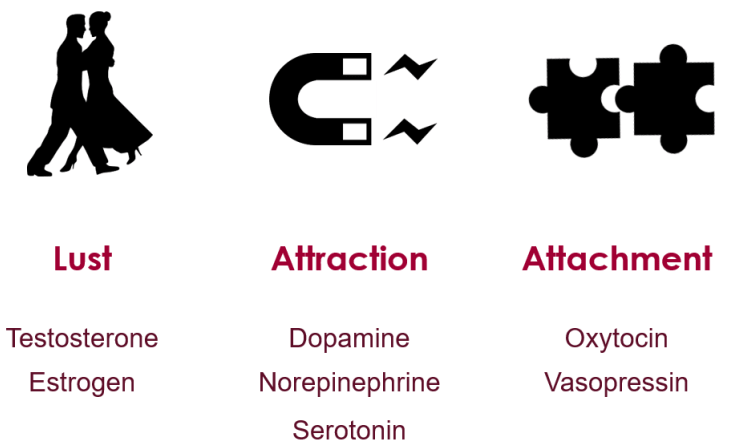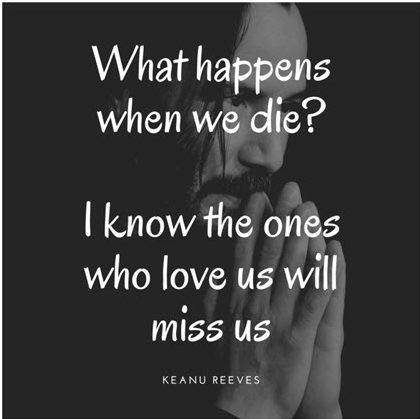
I’ve been noodling for a long time on the idea of love, and I’ve come to realize, perhaps unsurprisingly, that it’s an incredibly complicated topic.
I think most people would say “I know exactly what love is”, but I believe their understanding would most likely be incomplete.
For example, did you know that in ancient Greece they had 6 words for love?
- Agápē (ἀγάπη) – Love: esp. brotherly love, charity; the love of God for man and of man for God.
- Érōs (ἔρως) – Romantic love, mostly of the sexual passion sort, the first step towards a deeper type of love. Lovers and philosophers are all inspired to seek truth through the means of Érōs.
- Philía (φιλία) – Affectionate regard, friendship, usually between equals. It is a dispassionate, virtuous love.
- Storgē (στοργή) – Parental love and affection; also love of a country or sport’s team. “I will root for you and defend you and share in your wins and losses” sort of love.
- Philautía (φιλαυτία) – Self-love. Could mean either narcissism or healthy self-esteem.
- Xenia (ξενία) – Hospitality, or perhaps a sort of social obligatory caring. (Not sure I’d think of this as love in any sense, but it’s in the list, so while I’m including it here, I won’t be exploring it.)
Irish, Tamil, and Sanskrit all have 5 words for love, and this doesn’t even begin to scratch the hundreds and hundreds of synonyms and modifiers we use to express the many nuances we bucket under the umbrella of ‘love’.
It is clearly a difficult subject to pin down, and frankly I’m finding it equally challenging to research and pen down 😉
I think the Greeks did a good job of breaking down the most common variants on love, but what I’d primarily like to explore are Érōs and Storgē, as well as the underlying biological structures that underpin these types of love (physiological, mental, emotional), and then perhaps explore the idea of love from an existential viewpoint, Agápē.
A good place to start is with the biological basis of love, for which there’s a wonderfully informative Wikipedia article we can poke at.
This article looks at it in 3 dimensions:
- Evolutionary Psychology
- Social Psychology
- Neurochemistry
In terms of evolutionary psychology, two aspects of love are explored in the wiki: parent<–>child (Storgē), and parent<–>parent (Érōs).
The love a parent feels for a child appears to be an evolutionary adaptation to aid in the survival of the species and the continuation of one’s genetic line, as human children aren’t self-sufficient for many, many years, and thus a control mechanism is needed to keep the parents present and invested in that child. This is a pretty cold, clinical definition, but it fits what we can see from studying both humans and other similar species.
As for love between mates, that one is fairly self-explanatory. We are wired first and foremost for procreation, and that lust for sex is extremely potent, deeply rooted, and represents the normal foundation of what we think of as Love.
Love in this sense goes through 3 phases: Lust–>Attraction–>Attachment.
Love at first sight? Most likely lust at first sight 😂
This image from Harvard shows the neurochemistry of these phases:

Source: https://sitn.hms.harvard.edu/flash/2017/love-actually-science-behind-lust-attraction-companionship/
The argument could be made that love is *just* this neurochemical process coupled with memories, and if you’ve seen the “36 Questions to Fall in Love” lists or apps floating around, that sort of thing is attempting to hack the brain’s “falling in love” circuitry and speed up the process.
But, as the divorce statistics around the world clearly show, love is not a one way street. You can fall in love, and you can fall out of love. This seems to apply to almost all types of love outlined above.
Love is clearly not a final destination, but a variable state.
Of course, to truly understand love in all its many varieties, one must understand all the underlying incentives, most if not all of which are hardwired into us at birth, with some aspects programmed in during childhood.
While this is a vast oversimplification, it appears that love boils down into some combination of the following biological factors:
- Survival
- Procreation
- Fear
Fear? Yes. Fear of being alone. Fear of being outcast. Fear of non-existence. Fear of death.
This is explains why love is not rational, since all of these things are rooted in the very oldest portion of our brains, the areas least open to conscious scrutiny and control.
Death of course represents the ultimate form of loss, of losing that to which we are most attached, so I think this Keanu Reeves quote is quite poignant:

He clearly points out the attachment nature of love, and the distinction that when something we love is lost, we miss it.
From my book Screw the Zoo, I wrote this:
“If no pain is felt at the loss of something, if it isn’t missed, then the thing that was lost had little to no value.”
So, love is a representation of the value something has to us, our attachment to and perhaps reliance on that person or thing for some facet of our physical and/or emotional wellbeing.
Love is, perhaps surprisingly (or maybe unsurprisingly), self-centered. The feeling of love exists in the lover, and IS a form attachment. It involves another, but is about us.
From Cixin Liu’s book The Dark Forest:
“Are you under the impression that the object of everyone else’s love actually exists?…For the majority of people, what they love exists only in the imagination. The object of their love is not the man or woman of reality, but what he or she is like in their imagination. The person in reality is just a template used for the creation of this dream lover. Eventually, they find out the differences between their dream lover and the template. If they can get used to those differences, then they can be together. If not, they split up. It’s as simple as that.”
Here’s what Jed McKenna (aka Peder Sweeney), the author of some of my favorite books, has to say:
“There is only fear. Fear disguised as love. Fear disguised as morality. Fear disguised as compassion.”
To be attached means you would feel loss or sadness if the attachment was severed, and so you fear the absence of whatever you think you have or desire. This is clearly a factor in Érōs, Philía, Storgē, and Philautía.
But what about Agápē, “divine” love? Again, from Jed:
“Do you know what Agapè is?”
“Yes, it’s like the highest form of love. Divine love.”
“Yeah, that’s what everyone thinks, but it’s not really. It’s one of those things you can’t understand until you have the direct experience of it. Love as we know it is like a shadow of Agapè; like the candlelight flickering on the wall and not the flame itself. It’s a very different thing at its source, but love is the closest representation of Agapè available, so that’s what it gets translated as.”
The word Divine has a ton of baggage (in regards to Agápē especially), but it helps perhaps to think of it as a “perfect” form of love, where you want nothing but what is best for another, free from any personal attachment, judgment, or conditions.
It is a blend of wonder, awe, and “love” of things as they are. If you can look upon anyone or anything, any possible scenario, and truly say “I wouldn’t have it any other way”, perhaps you’ve experienced Agápē.
I think Jed’s most interesting statement regarding love is this one (it helps to know/keep in mind that Jed claims to be Enlightened):
“When I use words like love and hate, what I really mean is more like attract and repel in the energetic sense.”
While Jed is simply stating his definitions, that he uses common words like love and hate to mean attraction and repulsion, I find this to be a VERY interesting way to look at it, akin to magnetism, a force. This framing helps one to clearly see the energetic SPECTRUM that is Love<->Hate.
And so it is with all things at the level of duality…there is no love without hate, no right without wrong, no light without dark. Every aspect of duality exists because of duality. This is the meaning of Yin and Yang.
And if love exists at the level of duality, that makes it a component of ego, of our illusory selves.
Our reality is rendered individually, in our minds, according to this duality. We literally experience reality from a self-centered position, and can’t truly observe it in any other way short of Enlightenment (or so it would seem).
So…what is love?
A mental construct.
But hey, so is everything else…and as Jed would say, if you’re stuck in the amusement park, might as well enjoy it 😁
The different flavors of love are like different rides in an amusement park, there to be experienced and enjoyed (perhaps repeatedly).
But they should be experienced with the knowledge that they are transient experiences, with neither desire nor effort to change the experience, but simply enjoying and appreciating it for what it is, while it lasts.
An attachment occurs when you want a thing to be a certain way, to stay a certain way, or to never go away, and I believe any love that contains those feelings is not love in the purest sense, not Agápē.
If you can reach a place where you can love things as they are, and let them go without clinging, you’ll be much better off.
